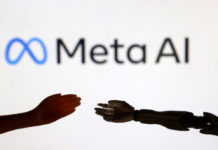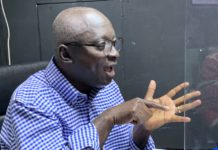Ghana’s new government is looking to fix a crippling power crisis with a complete overhaul of its deficit-ridden energy sector including a boost for solar energy.
President Nana Akufo-Addo’s New Patriotic Party (NPP) has now begun to develop a new electricity master plan, which also includes possibly listing state-owned power generation and supply companies on the stock exchange.
Such asset sales would not only move the under performing utilities off the government’s books, but private ownership may well make them more efficient, ex-pert say.
Intermitten Power supply issues have dogged the West African states since the 1980s and became particularly acute in the past five years- although there has been some improvement recently.
Ghana’s energy sector was crushed by an accumulated debt of $2.4n, the president said, as the cost of buying fuel, paying energy suppliers and running insufficient state companies spiraled out of control.
Its bad financial situation ‘constitutes the single major hurdle to Ghanaians enjoying reliable and affordable electricity supply,’ President Akufo-Addo said in January in his first state of the National address.
Improvements in the provision of power were seen in the run-up to December’s election but Akufo-Addo said the challenges within the sector were far form over and high costs were a major stumbling block.
This year’s budget included ambitious plans for renewable energy to provide two to 3 percent of supply to the national grid and, in addition, develop 38,000 solar-powered- homes in ‘off-grid’ communities.
Harnessing the power of Africa’s most abundant free resource -the sun- to provide electricity has long been a challenge for governments across the continent.
In Ghana, there are hopes that more people will sign up to a 500-watt solar panel scheme started under Mahama for homes and businesses. The panels come free, but takers must still foot start-up costs of around $1,500.
The Energy Commission wants to see 200,000 such systems installed, but the scheme’s coordinator, Kenneth Appiah, says since it was launched in February last year only 400 units have been installed. Among those who have received the panels – each installation is worth about $450 – is accountancy lecturer Daniel Nkrumah Afyeefi.
He said the programme was a good starting point to get his home off the grid and he planned to add more panels to lower food refrigeration costs and avoid hot, sleepless night.
“When you live in a place like Accra and you need to store food items.
When power runs off and on like that soem of teh things get spoiled,” he told Agence France Presse (AFP).
“You tend to be buying as and when you eat, and that ends up increasing your cost of purchasing food items.” Ghana gas seen four different power crisis since 1982 due to low water levels in the country’s dams, said Ishmael Ackah, head of policy at the Africa Center for Energy Policy.
source: businessday


![Ghana discover WAFU Zone B U17 Championship group [Full Group]](https://www.adomonline.com/wp-content/uploads/2024/04/WhatsApp-Image-2023-04-14-at-10.39.33-AM-218x150.jpeg)




